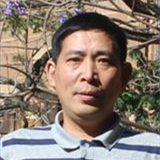Areas of Focus
- Chinese Cultural Psychology
- Wisdom Psychology
Work Experience
- 1999.9-2001.10: Postdoctoral Research, Nanjing Normal University
- 1999.9-2012.9.28: Teaching and Research in Psychology, Nanjing Normal University
- 2012.9.28-present: Teaching and Research in Psychology, Nanjing Normal University
- 2012.9-2021.6: Member of the Academic Degree Evaluation Committee, Nanjing Normal University
- 2014.6-2019.12: Member of the Undergraduate Teaching Guidance Committee, Nanjing Normal University
- 2017.12-2022.11: Member of the Academic Committee, Nanjing Normal University
- 2019-2021: Vice Chairman of the Cultural Psychology Committee, Chinese Psychological Society
- 2014-2026: Member of the 8th, 9th, and 10th Council of the Chinese Social Psychology Society
- 2022-2025: Vice Chairman of the Theoretical Psychology and History of Psychology Committee, Chinese Psychological Society
- 2023.6-2026: First Chairman of the Human Wisdom Psychology Committee, Chinese Social Psychology Society
Academic Background & Achievements
- 1989.9-1993.7: Bachelor's Degree in Education Management, Jiangxi Normal University
- 1993.9-1996.7: Master's Degree in General Psychology, Jiangxi Normal University
- 1996.9-1999.7: Doctorate in Basic Psychology, Nanjing Normal University
- 2001: Promoted to Associate Researcher
- 2005: Promoted to Professor
- 2012: Recognized as 'Psychologist' by the Chinese Psychological Society
Publications
- Analyzing the Debate of Reason and Desire in Neo-Confucianism from a Psychological Perspective, Fengyan Wang, 1999
- On the Theory of Human Dignity in Ancient China, Fengyan Wang, 1999
- Sinicization of Psychological Research: Purpose, Meaning, and Methods, Fengyan Wang, Hong Zheng, 2001
- The 'Self' in Ancient Chinese Mind and Its Implications, Fengyan Wang, 2004
- Confucian Thinking in Traditional Moral Education: Key Ideas and Fundamental Features, Fengyan Wang, 2004
- The Psychological Mechanism of the Sense of Honor and Shame and Its Educational Significance, Fengyan Wang, 2006
- The Meaning of 'Virtue' and Its Implications for Contemporary Chinese Moral Education, Fengyan Wang, 2006
- Scientific View on Children Reading Classics, Fengyan Wang, 2007
- Confucius' Thirteen Standards for Defining 'Gentleman Personality' and 'Small Man Personality', Fengyan Wang, Hong Zheng, 2008
- The Concept of 'Knowing and Gaining Wisdom': A Classic Chinese View of Wisdom, Fengyan Wang, Hong Zheng, 2009
- Semantic Analysis Method: An Important Method for Studying Chinese Cultural Psychology, Fengyan Wang, Hong Zheng, 2010
- Changing Moral Customs: The Best Entry Point for Life Moral Education, Fengyan Wang, Hong Zheng, 2012
- Integration of Morality and Talent: The Nature and Scope of Wisdom, Fengyan Wang, Hong Zheng, 2015
- Chinese Cultural Psychology: Research Significance, Connotation, and Methods, Fengyan Wang, 2017
- Questioning the Rice Theory: A New Theory on the Internal and External Causes of Chinese Preference for Holistic Thinking, Fengyan Wang, 2018
- Using Artificial Wisdom to Address the Threat of Artificial Intelligence, Fengyan Wang, Xindong Wei, 2018
- On the Theory of Stupidity: The Lack of Morality and Talent, Fengyan Wang, Hong Zheng, 2018
- Independent Self and Interdependent Self: The Birth, Transformation, and Fixation of the Chinese Self from a Cultural Historical Evolution Perspective, Fengyan Wang, 2019
- Development and Reliability and Validity Test of the Integrated Wisdom Scale, Xurong Fu, Fengyan Wang (Correspondence), 2020
- Cultural Differences and Mechanisms of Wisdom Reasoning in Self-Friend Conflict Situations, Xindong Wei, Fengyan Wang (Correspondence), 2021
- Ternary Taiji Models of the Traditional Chinese Self: Centered on Confucian, Taoist, and Buddhist Cultures, Zhidong Wang, Fengyan Wang (Correspondence), 2021
- Wisdom: Meaning, Structure, Types, Arguments, and Future Concerns, Kaili Zhang, Jing Shi, Fengyan Wang (Correspondence), Michel Ferrari, 2023
- Do Not Ignore Small Good Deeds: Mindfulness and Wisdom—The Chain Mediation of Social Benevolence and Perspective Taking, Yimeng
Awards
- 2013: Third Prize, Excellent Scientific Research Achievement Award (Humanities and Social Sciences), Ministry of Education, for 'History of Chinese Psychological Thought'
- 2015: Third Prize, Excellent Scientific Research Achievement Award (Humanities and Social Sciences), Ministry of Education, for 'Chinese Cultural Psychology'
- 2011: First Prize, Excellent Achievement Award in Philosophy and Social Sciences, Jiangsu Province, for 'History of Chinese Psychological Thought'
- 2014: First Prize, Excellent Achievement Award in Philosophy and Social Sciences, Jiangsu Province, for 'Chinese Cultural Psychology'
- 2003: Second Prize, Excellent Achievement Award in Philosophy and Social Sciences, Jiangsu Province, for 'Thoughts on Traditional Chinese Moral Education Psychology'
- 2016: Second Prize, Excellent Achievement Award in Philosophy and Social Sciences, Jiangsu Province, for 'Theoretical Exploration and Application Research of Wisdom Psychology'
- 2020: Second Prize, Excellent Achievement Award in Philosophy and Social Sciences, Jiangsu Province, for 'New Theory of Chinese Cultural Psychology'
- 2001: Third Prize, Excellent Achievement Award in Philosophy and Social Sciences, Jiangsu Province, for 'Traditional Chinese Psychological Health Preservation'
- 2023: Third Prize, Excellent Achievement Award in Philosophy and Social Sciences, Jiangsu Province, for 'Questioning the Rice Theory'
- 2006: Third Prize, Young Teacher Award, Fok Ying Tung Education Foundation
- 2004: Fourteenth China Book Award for 'Thoughts on Traditional Chinese Moral Education Psychology'
- 2011: Selected as a second-level training object for the fourth phase of the '333 High-level Talent Training Project' in Jiangsu Province
- 2018: Selected as a second-level training object for the fifth phase of the '333 High-level Talent Training Project' in Jiangsu Province





